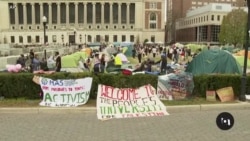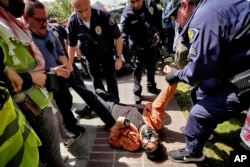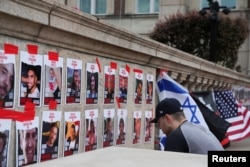Student Union
- By Qian Chen
Why a BMW Became Newsworthy When Chinese Students Died at USC
After waking up in the morning of April 11, 2012, I turned on my laptop, and suddenly I was shocked by some breaking news – two Chinese students had been shot to death that morning near the campus of the University of Southern California (USC).
[Our coverage]
Like me, many Chinese students in the United States were saddened and upset after this unfortunate incident. However, what soon became more upsetting was the media’s focus on the supposed wealth of graduate students Ying Wu and Ming Qu, and how that played into their tragic deaths.
A BMW stirs hate
According to the Associated Press, police said the shooting might have been an attempt to carjack the students’ “dark-colored, $60,000 BMW.” The AP noted, “The types of students who come from abroad typically skew wealthier, because they have to be able to afford a school’s tuition without financial aid.”
In China, this angle became the focus of the story. Many Chinese websites, even including several major online media, rewrote the title of this article as “Two Chinese Students in Los Angeles Were Shot to Death in BMW.”
One netizen even wrote on the Chinese social media site QQ, “Chinese students studying in the U.S. are from rich and powerful families. They use US taxpayers’ money to live luxurious lives and buy expensive BMWs. They deserve to die.”
Later it was clarified that the BMW that Ming Qu was driving was a second-hand car, which had 80,000 miles on it and friends said it only cost him around $10,000.
But the image of the Chinese student in America with his expensive BMW was a powerful one to Chinese netizens.
Why the BMW is important
Without financial aid, college tuition and costs in the United States, especially for a private university like USC, are rarely affordable for a Chinese middle class family. Therefore, many Chinese students studying in the U.S. are labeled as the spoiled wealthy or official second generation.
In addition, with reports in recent years that some corrupt Chinese government officials have laundered their bribery money by sending their children and illegal property abroad, some Chinese tend to move their anger about wealth inequality to Chinese students studying abroad as a whole, because they believe those students are squandering Chinese taxpayers’ money.
The BMW in which these two Chinese students were shot became a symbol of privilege, and of the wealthy flaunting their money as others in China struggle (even though these particular students turned out to have been not that wealthy at all).
Are the stereotypes true?
It’s not just in Chinese media where this image of wealthy Chinese students is propagated, though. Both Chinese and American media talk about how American colleges are pursuing wealthy Chinese students who don't require financial aid, or of how some of them are living luxurious lives in America with their parents' money.
And having spent almost four years in an American college and looking at the Chinese student community around me, I have to admit it is true that there are those Chinese students who are from rich or powerful families.
It is true that there are those Chinese students who are fond of luxurious brands and expensive cars, and that there are those Chinese students who are just here for a U.S. college diploma.
However, as with all generalizations, this image of Chinese students does not represent the whole truth.
The fact is that I know lots of Chinese students who work as hard as possible to make a living and support their education. Another hard fact: I have met lots of Chinese students who stay until midnight in the library to study and get straight A's in their classes. One last hard fact: lots of Chinese students, even those who are from wealthy and rich families, are fighting hard for their dreams and futures.
It takes courage to fly fifteen hours to cross half of the planet, and it’s never easy to say goodbye to our families and friends. Those who make this decision and fight for their dreams deserve to be respected.
Every life matters and every life is valuable, no matter whether he or she dies on a $20 bicycle, or in a $60,000 BMW -- no one “...deserves to die in a BMW.”
R.I.P., Ying Wu and Ming Qu.
See all News Updates of the Day
Pro-Palestinian protests spread on US university campuses
U.S. university campuses are seeing pro-Palestinian protests daily. Students are demonstrating against the Israel-Hamas war in Gaza and demanding that humanitarian aid be allowed to flow into the territory. VOA’s Veronica Balderas Iglesias reports.
US police clash with students who demand colleges cut financial ties to Israel
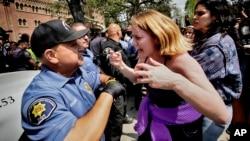
Police tangled with student demonstrators in the U.S. states of Texas and California while new encampments sprouted Wednesday at Harvard and other colleges as school leaders sought ways to defuse a growing wave of pro-Palestinian protests.
At the University of Texas at Austin, hundreds of local and state police — including some on horseback and holding batons — clashed with protesters, pushing them off the campus lawn and at one point sending some tumbling into the street. At least 20 demonstrators were taken into custody at the request of university officials and Texas Governor Greg Abbott, according to the state Department of Public Safety.
A photographer covering the demonstration for Fox 7 Austin was arrested after being caught in a push-and-pull between law enforcement and students, the station confirmed. A longtime Texas journalist was knocked down in the mayhem and could be seen bleeding before police helped him to emergency medical staff who bandaged his head.
At the University of Southern California, police got into a back-and-forth tugging match with protesters over tents, removing several before falling back. At the northern end of California, students were barricaded inside a building for a third day at California State Polytechnic University, Humboldt. The school shut down campus through the weekend and made classes virtual.
Harvard University in Massachusetts had sought to stay ahead of protests this week by limiting access to Harvard Yard and requiring permission for tents and tables. That didn't stop protesters from setting up a camp with 14 tents Wednesday following a rally against the university's suspension of the Harvard Undergraduate Palestine Solidarity Committee.
Students protesting the Israel-Hamas war are demanding schools cut financial ties to Israel and divest from companies enabling its monthslong conflict. Dozens have been arrested on charges of trespassing or disorderly conduct. Some Jewish students say the protests have veered into antisemitism and made them afraid to set foot on campus.
Columbia University averted another confrontation between students and police earlier in the day. The situation there remained tense, with campus officials saying it would continue talks with protesters for another 48 hours.
On a visit to campus, U.S. House Speaker Mike Johnson, a Republican, called on Columbia University President Minouche Shafik to resign "if she cannot bring order to this chaos."
"If this is not contained quickly and if these threats and intimidation are not stopped, there is an appropriate time for the National Guard," he said.
Shafik had set a midnight Tuesday deadline to reach an agreement on clearing an encampment, but the school extended negotiations, saying it was making "important progress."
On Wednesday evening, a Columbia spokesperson said rumors that the university had threatened to bring in the National Guard were unfounded. "Our focus is to restore order, and if we can get there through dialogue, we will," said Ben Chang, Columbia's vice president for communications.
Columbia graduate student Omer Lubaton Granot, who put up pictures of Israeli hostages near the encampment, said he wanted to remind people that there were more than 100 hostages still being held by Hamas.
"I see all the people behind me advocating for human rights," he said. "I don't think they have one word to say about the fact that people their age, that were kidnapped from their homes or from a music festival in Israel, are held by a terror organization."
Harvard law student Tala Alfoqaha, who is Palestinian, said she and other protesters want more transparency from the university.
"My hope is that the Harvard administration listens to what its students have been asking for all year, which is divestment, disclosure and dropping any sort of charges against students," she said.
Columbia encampment inspires others
Police first tried to clear the encampment at Columbia last week, when they arrested more than 100 protesters. The move backfired, acting as an inspiration for other students across the country to set up similar encampments and motivating protesters at Columbia to regroup.
On Wednesday about 60 tents remained at the Columbia encampment, which appeared calm. Security remained tight around campus, with identification required and police setting up metal barricades.
Columbia said it had agreed with protest representatives that only students would remain at the encampment and they would make it welcoming, banning discriminatory or harassing language.
On the University of Minnesota campus, a few dozen students rallied a day after nine protesters were arrested when police took down an encampment in front of the library. U.S. Representative Ilhan Omar, whose daughter was among the demonstrators arrested at Columbia last week, attended a protest later in the day.
A group of more than 80 professors and assistant professors signed a letter Wednesday calling on the university's president and other administrators to drop any charges and to allow future encampments without what they described as police retaliation.
They wrote that they were "horrified that the administration would permit such a clear violation of our students' rights to freely speak out against genocide and ongoing occupation of Palestine."
Netanyahu encourages police response
Israeli Prime Minister Benjamin Netanyahu lashed out at the pro-Palestinian demonstrations on U.S. college campuses in a video statement released Wednesday, saying the response of several university presidents has been "shameful" and calling on state, local and federal officials to intervene.
Students at some protests were hiding their identities and declined to identify themselves to reporters, saying they feared retribution. At an encampment of about 40 tents at the heart of the University of Michigan's campus in Ann Arbor, almost every student wore a mask, which was handed to them when they entered.
The upwelling of demonstrations has left universities struggling to balance campus safety with free speech rights. Many long tolerated the protests, but are now doling out more heavy-handed discipline, citing safety concerns.
At New York University this week, police said 133 protesters were taken into custody and all had been released with summonses to appear in court on disorderly conduct charges. More than 40 protesters were arrested Monday at an encampment at Yale University.
Columbia University demonstrators in talks with administration officials
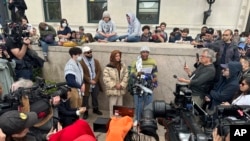
Officials at Columbia University were continuing talks Wednesday with student demonstrators from the Gaza Solidarity Encampment as the protest reaches a full week.
At 9:41 p.m. Tuesday, university President Nemat “Minouche” Shafik sent an email to the Columbia community setting a midnight deadline for an agreement to be reached about dismantling the encampment and dispersing the protesters.
“I very much hope these discussions are successful,” she wrote. “If they are not, we will have to consider alternative options for clearing the West Lawn and restoring calm to campus so that students can complete the term and graduate.”
As midnight passed, Columbia University Apartheid Divest posted a statement on X saying, “We refuse to concede to cowardly threats and blatant intimidation by university administration. We will continue to peacefully protest.”
The statement also said the university had threatened to call the National Guard. But after visiting the university earlier in the week, New York Governor Kathy Hochul said Tuesday she had no plans to deploy the National Guard.
As midnight approached on Tuesday, a student organizer announced that the deadline had been extended to 8 a.m. Wednesday.
At 4:09 a.m., the Office of the President sent an email saying the discussion deadline would be extended for 48 hours, given the constructive dialogue, and the university would report back on progress.
The email announced that leaders of the student encampment had agreed to remove a significant number of tents, get non-Columbia affiliates to leave the encampment and comply with New York Fire Department requirements. They also agreed to ensure that the encampment is “welcome to all” and to prohibit “discriminatory or harassing language.”
This development comes nearly a week after more than 100 students were arrested at the school on April 18, after Shafik authorized police to clear away protesters. Some of the students received suspension notices from the school.
Columbia’s action prompted an onslaught of pro-Palestinian demonstrations at other universities and responses from faculty and politicians.
Students at other campuses, such as Yale, Stanford and New York University, have also rallied around the Palestinian cause, calling for their universities to divest from companies with ties to Israel and for a cease-fire in Gaza. Many also have put up tent encampments on their campuses. About 150 students and faculty were arrested at New York University Monday night.
Columbia also announced Tuesday morning that classes on the Morningside main campus, where the protests are taking place, will be offered in a hybrid format for the remainder of the spring semester. The last day of classes is April 29.
- By VOA News
Paper: International students faced extra pandemic challenges
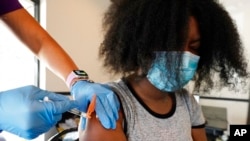
Astrobites, which describes itself as "a daily astrophysical literature journal written by graduate students in astronomy since 2010," focuses on the challenges international students faced during the COVID-19 pandemic.
It examines a paper published in the Journal of Comparative & International Higher Education entitled The Impact of the COVID-19 Pandemic on International Students in a Public University in the United States: Academic and Non-academic Challenges.
Read the Astrobites article here. (April 2024)
- By VOA News
15 cheapest US universities for international students
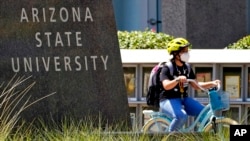
Yahoo!Finance has compiled a list of the 15 cheapest U.S. universities for international students.
Among them: Arizona State University, the University of North Carolina at Chapel Hill and Michigan State University.
Read the list here. (March 2024)






